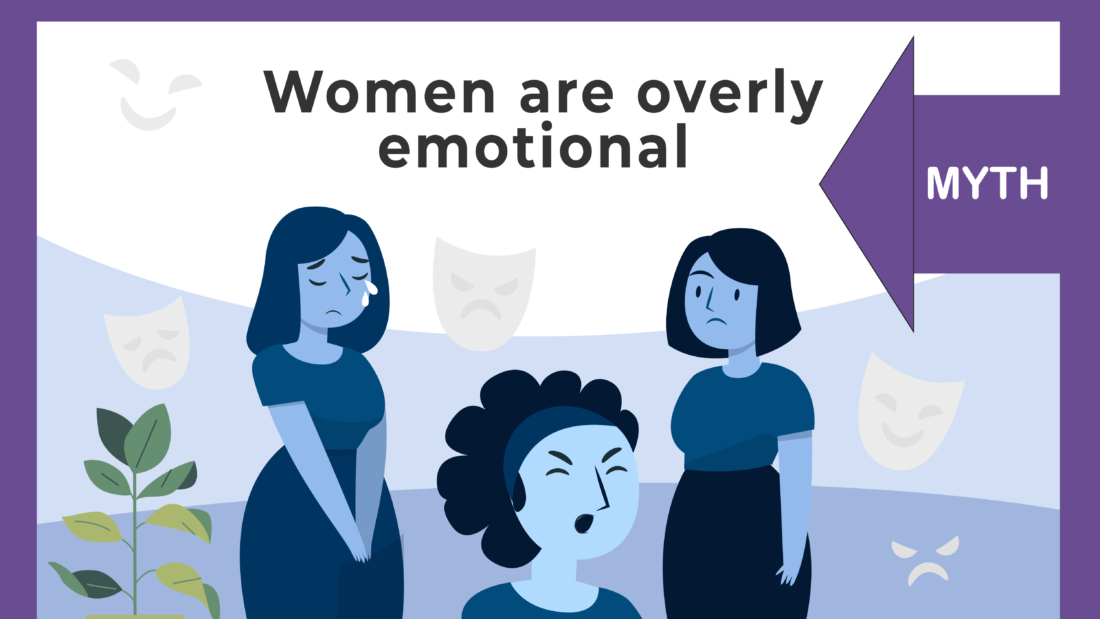Most women have probably been called “too emotional” at various points in their life, irrespective of where they are, their academic qualifications, groups they belong to and even regardless of what positions they hold at work. This goes hand in hand with labels like “irrational’, “Hysterical”, “dramatic”, “Overdramatic” and “too sensitive”. A lot of this is also attributed to women’s hormones and menstruation, as innate aspects of their being.
This month, we took a look at the facts behind these statements. Are women really more emotional than men? Does one’s sex and ovarian hormones’ influence on affect and volatility significantly inform behaviour?
It’s interesting to note, that a 2021 study, exploring this question with a group of men and women (naturally cycling and women on oral contraceptives) found that this is in fact a myth.
The results of the study more specifically found that largely, there is little evidence to support the assumptions about the emotional variability or volatility of women. Moreover, the results aligned with other research suggesting that “ovarian hormones do not matter for affective variability”, and also that males experience their own sex-specific variability and prior research that indicated that men and women do not differ in self-reports of day-to-day distress. this means that male participants emotions are likely to fluctuate as much as a woman’s. Moreover, the results also support the understanding that women taking oral contraceptives don’t show significantly different changes in their emotional expression and variability than the women who are naturally cycling.
Now this conflicts with popular opinion, and with some findings from the few studies that indicate that women have greater self-reported variability, especially for negative emotions, than do men. The interesting observation here is that these are reports that rely on what is self-reported. Looking at these results from a psychosocial lens, it’s likely that the internalization of the ideas around gender roles and expectations may have colored the lens with which people self-evaluated their emotional responses. While there may be no actual biological reason for emotional variability amongst the sexes, it’s important to keep in mind socialization and gender roles and expression – that make it okay for women to express their emotions openly, while men are taught to hide or ignore these emotions, and even mask them under anger and dominance. Let us not forget how boys are socialized often in their childhood by messages not to “cry like a girl” teaching them that emotions are essentially a sign of weakness.
It’s important for us to pay attention to the embedded bias and drop the myths we have been socialized to believe about women. Only then can we work towards an equitable and safe world, wherein we do not restrict women’s opportunities and entry into institutions and workspaces.
 Cart is empty
Cart is empty 


